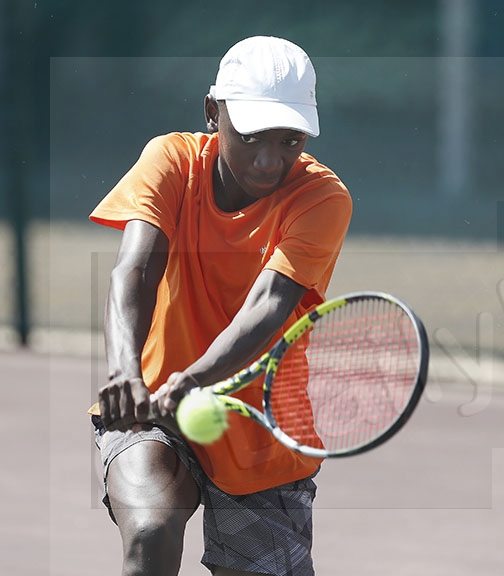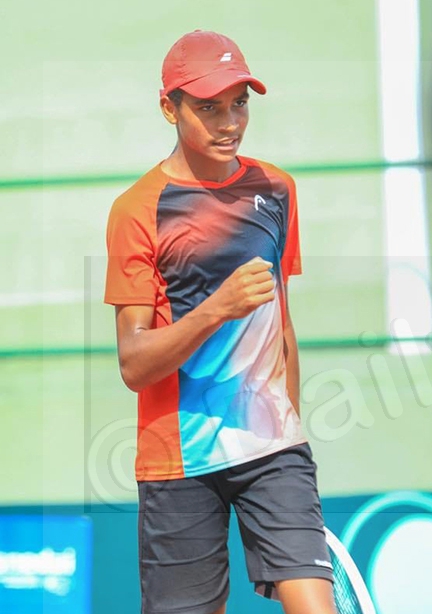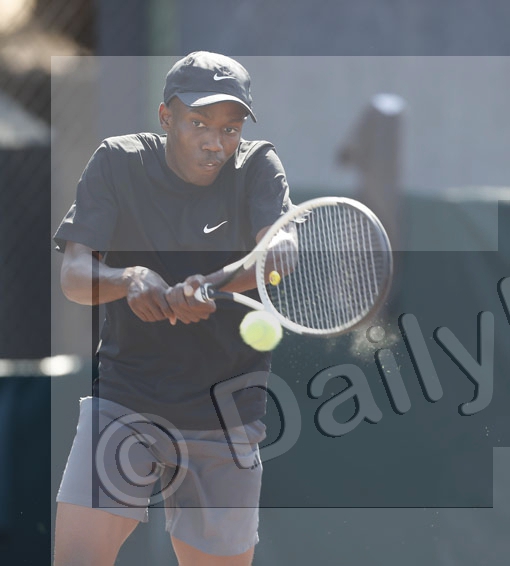Expert encourages BTTA to develop plan
16 Jul 2024
Developing a 10-year plan is one instrument that will help Botswana Table Tennis Association (BTTA) to equip players with the much needed skills in the sport and improve their performance at all levels of competition.
This was advice from a seasoned table tennis coach well-known for her expertise in nurturing young talent, Eva Jeler, in an interview after a week-long International Table Tennis Federation (ITTF) Africa Hopes Training Week and Challenge that was held in Gaborone at Botho University Multipurpose Hall from July 9-14.
Jeler explained that a period between the ages of 10 and 20-years-old, was a window where a young table tennis players would be able to acquire the much needed skills.
“This is the time when a players will fully develop physically, mentally through continuous training devoting more hours of the day to the game,” she said.
She said playing table tennis was comparable to learning music, therefore, one must train daily and more.
Again, she said at a young age, it was much easier to acquire and engrave into one’s brain all what was to be useful in many more years to come.
Therefore, she said it was important for the young people to have mentors in the form of coaches empowered with the requisite skills and resources to guide them in the right direction.
“I say in 10 years, a player who at a young age has undergone through the right development structures will most definitely excel,” she said.
Therefore, her advice to BTTA was to set a target of being the best in Africa in the coming 10 years and then think about conquering the world.
She said it was important to create an environment for the players to practice everyday, then create opportunities for growth through tournaments.
The week-long event was one of BTTA’s landmark achievements towards driving their efforts in youth development.
Coordinated by Jeler, the Hopes Training Week and Challenge is an ITTF training and development programme targeting U-12 players, identifies and develops players across the world from a young age.
The event trained young and aspiring table tennis players from 10 countries across the African continent.
Jeler said the event was also used to stage a challenge for the players to apply their acquired skills.
Jeler said the programme was meant to catch players while young and instil into them, the necessary skills that would help them grow into world class players.
She said the 21 players that attended the week-long camp were given hope that they had the potential to grow and play better, even better than their role models.
From the word go, Jeler said it was crystal clear that the players were different, in terms of how and where they had acquired their initial skills in table tennis.
“I also had to appreciate that they were at different levels of their development. One could tell how much time each player was accorded to play the game coupled with the availability of resources and the development structures in their respective countries,” she said.
She said the training also included the coaching personnel. “Our aim is to work with the coaches to empower them with the requisite skills necessary for grass roots development. We were here with the coaches to empower the players. Hopes is a development programme and at the end of the training week, the players are a given a challenge to test and apply the newly acquired skills,” she added.
Despite lasting only a week, Jeler said the programme was designed in such a way that it was vital ingredient of the development journey as it would impart valuable skills to the young players.
Depending on their level of preparedness, Jeler said some players would be able to immediately apply what they had learnt, while for some the impacts would be felt after a long time.
Her holistic assessment of the Hopes Training Week, was that the event offered everything that a development coach was to expect to encounter in the development process.
“Some of the players have been playing the game for a long time, others just started recently. The Hopes is an initial stage of development, what matters how they will utilise what they have acquired to be better in the next five to 10 years.
She said the decisive point in the growth of an athletes would be having good coaches and structures to enable players to train, play and progress in the game.
Despite having a challenge of shortage of resources and funds toward producing world class coaches and other administrative personnel, Jeler said BTTA was doing enough with what was at their disposal to develop young talent.With some help, she said BTTA was bound to grow to desired heights as it was proven by hosting an event of such a magnitude. She said the challenge has indicated that Africa has talented young players who were equally willing to play the sport.
“Botswana players are very talented, but you can tell that their training programmes are different. Table Tennis requires a player to have more hours of training at a young age.
A 10-year training programme, with all the necessary resources will expose the young players to all what is required to be a star of the future,” she said.
Meanwhile, Andrew Mudibo, Africa Table Tennis Federation (ATTF) deputy president in charge of development, also concurred with Jeler that Hopes was a training camp used to nurture future table tennis champions.
“They have some knowledge and it is that knowledge that we want to polish and see them play better in the challenges that will follow after the Hopes,” said Mudibo. He added that it was important to develop players who would perform well at regional, continental and international levels. Ends
Source : BOPA
Author : Moshe Galeragwe
Location : GABORONE
Event : Interview
Date : 16 Jul 2024






